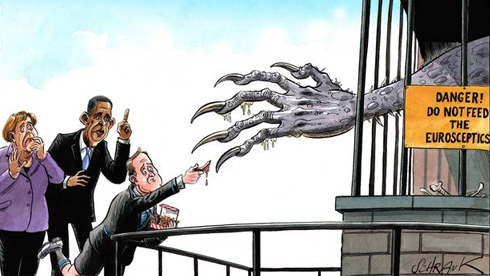The United Kingdom has long been a reluctant European. From the moment of accession to the then European Economic Community, four decades ago, its membership has been marked by misguided assumptions and missed opportunities.
The UK’s troubled relationship is a matter of culture, geography and history. Britain is a post-imperial power with an affinity to other English-speaking countries, especially the US. Mutual incomprehension between the UK and Europe comes down to a basic difference in outlook: while the UK sees membership of the club in economic terms, France and Germany, the co-founders, see the European Union as a political project forged from the ashes of the second world war.
Hardening divisions
These divisions have hardened in the wake of the eurozone crisis. Europe’s response, though initially faltering, has since stripped away the illusion that the Continental notion of an “ever closer union” is a figment of fevered imaginations in Brussels. Faced with the euro’s collapse, the case for a more integrated economic government is now received wisdom in all European capitals, including London.
Do you like our work?
Help multilingual European journalism to thrive, without ads or paywalls. Your one-off or regular support will keep our newsroom independent. Thank you!












